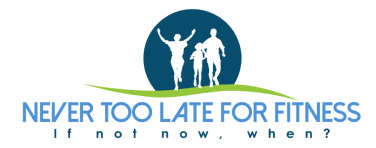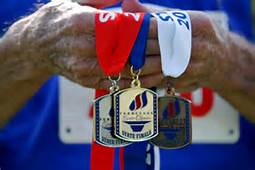This post is dedicated to the aging athletes in every sport who decide to play on. The basketball player who wants to feel the excitement of sinking the winning shot; the soccer player wanting to score the winning goal; or the runner who still feels she can set a personal best. It’s also for athletes that just want to look and feel as young and alive as they can be.
No matter what sport(s) you play, your goal should be to spend your time competing and not recovering from injuries or watching from the sidelines. For those who still have the heart to play on, this article is designed to help your body cash the checks your mind still wants to write.
If you decide to continue playing sports into your 50s, 60s and beyond, you must take care of your body. If you don’t, be prepared for injuries, pain, rehabilitation and possibly surgery.
To avoid or minimize these consequences:
· Get a complete movement assessment. Most older athletes have accumulated decades of nagging injuries, aches and pains that compromise movement. This often limits performance and can create chronic pain and further injuries. A qualified professional can assess your movement, identify imbalances and develop a safe and productive plan of corrective action and training.
· Improve your ability to recovery. Aging athletes often find their ability to recover from intense exercise diminishing. Thus, recovery must become a key component to your fitness program. Doing so will get you back in action sooner and your down time will be shorter and less painful. Recovery means placing a premium on sleep, nutrition and planned off days to let your body recharge and heal.
· Improving your aerobic capacity. Aerobic fitness is paramount to your ongoing success. The more fit you are the better you’ll compete. Many aging athletes only focus on “playing the game” and ignore conditioning. This usually results in diminished performance, injury or both.
· Manage your training volume. Learn to listen to your body and be aware of the total work you’re doing. By reducing training volume, you can avoid over training. This means taking a day off when you aren’t “feeling it” instead of blindly following your training program.
· Leave your ego at home. It’s easy to let your emotions and ego get the best of you when competing. I’ve seen aging athletes injure themselves trying to impress their buddies lifting weights that were way too heavy, or pull a muscle trying to stretch a double into a triple. The key to competing as we age is making sure that your body is prepared to compete. You also must be smart about where and when you push yourself.
Want to compete at the optimal level no matter what your age? Make sure you have the right mindset, train properly, move pain free and listen to your body.
As host of Never Too Late for Fitness Radio, best-selling author and Boomer health and fitness advocate I’m committed to helping people over fifty discover the right fitness and lifestyle solutions so that they can lead longer, healthier and happier lives. Let me hear about your greatest fitness achievements and challenges.

